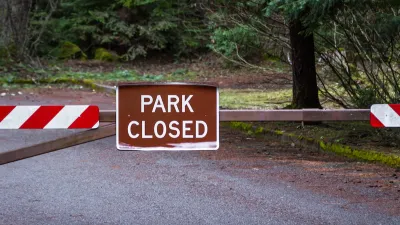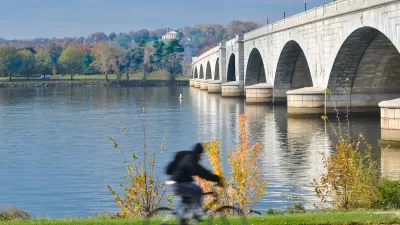A proposed rebate on electric bikes in the District would be more cost-effective in reducing gasoline miles driven than electric car subsidies thanks to the higher elasticity of e-bike demand.

According to an article by David Edmondson in Greater Greater Washington, a proposed $400 to $1,200 e-bike subsidy in Washington, D.C. “packs the most pollution-fighting power” compared to other plans to promote the adoption of zero-emission transportation, bringing the biggest return on investment for reducing gasoline miles driven.
As Edmondson explains, this has to do with the economic concept of elasticity. “[Zero-emission vehicles] are a lot more expensive than e-bikes and, therefore, it takes a lot of money to meaningfully lower the cost of a ZEV compared to an e-bike.” Edmondson used a Canadian model to predict e-bike sales under the new subsidy, predicting a rise of 15 percent in annual sales. “Remarkably, 44% of those sales would go to incentivized buyers who would not have otherwise purchased an e-bike,” Edmondson notes. Most electric car subsidies, on the other hand, tend to be used by people who would already buy electric or hybrid cars.
While they can’t replace all vehicle trips, e-bikes can have a significant impact on gasoline miles. “When a household buys an e-bike, their driving (as measured by vehicle miles traveled, or VMT) decreases by more than a third,” Edmondson found. “When that is taken into consideration, an e-bike subsidy is 2.9 times more effective per dollar at displacing gasoline miles than a ZEV subsidy.”
Edmondson points out the added benefits of e-bikes, such as better health, easier charging, requiring fewer resources for batteries and putting less strain on city streets, and reduced safety risks for pedestrians and other road users.
FULL STORY: Analysis: E-bike subsidies are more cost-effective than EV subsidies

Alabama: Trump Terminates Settlements for Black Communities Harmed By Raw Sewage
Trump deemed the landmark civil rights agreement “illegal DEI and environmental justice policy.”

Planetizen Federal Action Tracker
A weekly monitor of how Trump’s orders and actions are impacting planners and planning in America.

The 120 Year Old Tiny Home Villages That Sheltered San Francisco’s Earthquake Refugees
More than a century ago, San Francisco mobilized to house thousands of residents displaced by the 1906 earthquake. Could their strategy offer a model for the present?

In Both Crashes and Crime, Public Transportation is Far Safer than Driving
Contrary to popular assumptions, public transportation has far lower crash and crime rates than automobile travel. For safer communities, improve and encourage transit travel.

Report: Zoning Reforms Should Complement Nashville’s Ambitious Transit Plan
Without reform, restrictive zoning codes will limit the impact of the city’s planned transit expansion and could exclude some of the residents who depend on transit the most.

Judge Orders Release of Frozen IRA, IIJA Funding
The decision is a victory for environmental groups who charged that freezing funds for critical infrastructure and disaster response programs caused “real and irreparable harm” to communities.
Urban Design for Planners 1: Software Tools
This six-course series explores essential urban design concepts using open source software and equips planners with the tools they need to participate fully in the urban design process.
Planning for Universal Design
Learn the tools for implementing Universal Design in planning regulations.
Clanton & Associates, Inc.
Jessamine County Fiscal Court
Institute for Housing and Urban Development Studies (IHS)
City of Grandview
Harvard GSD Executive Education
Toledo-Lucas County Plan Commissions
Salt Lake City
NYU Wagner Graduate School of Public Service





























